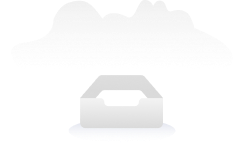Master of Rural Science
University of New England








Priority 1 (Fastest)
Sufficient school places|Visa Approval Time: 1-2 weeks for fast visa approval
Data updated: 2025-11-13
2026
- Total Tuition Fee79,592 AUD
- Fee Per Academic Year36,953 AUD
- Course Duration2.2 Year (112 weeks)
- Last Updated07-11-2025
Overview
Introduction
Upgrade your knowledge and skills or pivot your career by developing expertise in sustainable, science-based agricultural systems of production through UNE's Master of Rural Science. This postgraduate degree offers a supportive program of independent research related to practical and sustainable production of food and fibre. UNE is a leading innovator in teaching and research in the agricultural sciences. Your advanced knowledge and skillset will prepare you for high-level work in this rapidly evolving industry. Why study the Master of Rural Science with UNE? Our Master of Rural Science provides a program of independent, supervised research for high-calibre graduates that will enable you to make an advanced contribution to scholarship in a scientific field of knowledge related to the provision of food and fibre for world needs. We have active research programs in livestock production efficiency and cabon management, integrated animal health and welfare, livestock and product quality, soil science, soil pollution, organic farming, terrestrial carbon, cotton and grains, weed science and sustainable farming. For over 60 years UNE has been a leader of agricultural education and research. The visionary, pioneering work carried out by Professor Bill McClymont at UNE laid the groundwork for our modern understanding of agricultural systems. McClymont's holistic model is still used today to maximise production without losing focus on sustainable ecological, economic, social and environmental contexts. UNE maintains close links with the agricultural industry derived from our long experience in the teaching and research of agriculture. Our academics are at the forefront of innovation, leading research and development into agricultural sciences and agricultural systems. With a science-based, practical approach to problem solving at farm, catchment and industry level, our Master of Rural Science graduates are renowned for effectively developing and communicating solutions for all levels of rural production and agricultural systems. Our research facilities are world class. You will have access to the latest state-of-the-art infrastructure and technology for research at our innovative SMART Farms, laboratories and glasshouse facilities to develop science-based innovation to provide solutions for industry, now and into the future. UNE is Australia's longest continuous provider of distance (online) education. We're here to help you adapt to a rapidly-evolving world with skills and knowledge to prepare you for professional opportunities. What makes our course different? Our Master of Rural Science allows you to develop high-level, cutting-edge research skills, leading to an original contribution to knowledge via a thesis. Through our course you can: Direct your career by choosing your specialist research topic within such areas as genetics and breeding, nutrition, animal health and reproduction, physiology, animal behaviour, animal products: fibre, meat, eggs, cotton, soils cience, soil pollution, plant production systems and sustainable farming systems.Be part of a vibrant research-led academic community.Develop high-level research skills and methodology and enhance your critical thinking, problem-solving and communication skills.Work with research groups that rank amongst the best in the world. UNE's Rural Science based research is internationally renowned, and in the most recent independent assessment by the Australian Research Council, Excellence in Research Australia, we achieved outstanding results. Across a range of disciplines our research was given the top rating of 'well above world average'.Progress to a PhD in your chose field of research.Study flexibly either on campus, or online at home to suit your lifestyle and other commitments. If you are an Australian or New Zealand student and meet the criteria for entry to the Master of Rural Science, you may be funded under the Australian Government's Research Training Program (RTP) and may not incur tuition fees for the duration of the course. If you are an international student, you will incur tuition fees. Internal funding is available to support research projects and UNE offers a range of scholarships for Higher Degree Research students. Study online Most of our students choose to study online across three study periods with 24/7 tutor support* and fit study around work and family commitments. Uniquely, our online students are mostly over 30 and bring valuable experience with them. They form a community of adults juggling the same challenges and priorities and who bring their life and work experience together at UNE in order to become future-fit and better respond to a rapidly changing world. Study on campus Many of our students choose to take advantage of the on-campus lifestyle in Armidale, in the beautiful New England region, with access to unparalleled support, accommodation and sporting facilities. These students are often starting their first degree and have left school recently. Through access to academic and career support they get a fantastic start to their careers. * 24/7 tutor support includes: essay feedback (within 24 hours); live chat 24/7 for generic feedback on academic writing; and subject-specific help at a foundation or first-year level for subjects including mathematics, chemistry, biology, physics, business, accounting, microeconomics, macroeconomics and statistics. There are also a wide range of workshops, resources and courses available in academic skills support to assist you and help you to succeed.
Key Dates
2025
School Application Steps
Follow the process below, prepare materials in order, and track the progress of each stage.
- 1
Prepare Materials (School Application)
- Organize academic and language materials based on the list of target courses and schools.
- If the requirements are not yet met, you can apply for a language pathway program/packaged course (ELICOS/internal test) first.
- Name the electronic versions of documents uniformly (in English) for easy reuse in subsequent visa applications.
Documents for Adult Applicants
- 2
Briefing on School-Arranged Interview (if applicable)
- Submit application materials, including transcripts, passport, and English proficiency proof, to the State Department of Education.
- School review: The Department of Education recommends schools based on the student's situation, and the school arranges an interview after its review.
- Interview notification: An email will specify the interview time, method (usually Zoom or Teams), and preparation details.
- Interview content: A conversation in English including self-introduction, interests, academic situation, future plans, and a comprehensive assessment of learning habits, adaptability, reasons for coming to Australia, etc. The duration is approximately 15-30 minutes.
- 3
Submit School Application
- Submit the application through the school's official website or an agent's portal and pay the application fee (if any).
- Submit supplementary documents as required and track the admission progress (Conditional/Unconditional Offer).
- After meeting the conditions, pay the tuition deposit and complete the acceptance procedure (Accept Offer).
- 4
Obtain CoE and Arrange OSHC
- The school issues the CoE (Confirmation of Enrolment).
- Purchase/confirm OSHC to cover the entire visa period (including dependents, if any).
- 5
Visa Document Preparation (Subclass 500)
- Organize documents for finances, GTE, English proficiency, and medical examination, ensuring consistency with the chosen course.
- Check the letterheads, dates, translation formats, and certification requirements of visa documents.
Scholarship
School Level
The school's visa assessment level determines the risk level for students applying for a visa and is a significant reference.
For example, if a school's visa assessment level is 2, the applicant will face more restrictions and be required to provide more written evidence, such as proof of language proficiency and financial capacity.

Course Campuses
- NSW
Similar Course
WA
TAS

No data available~
